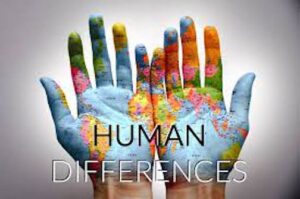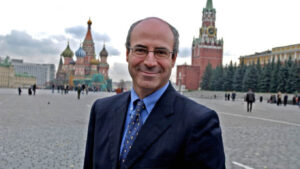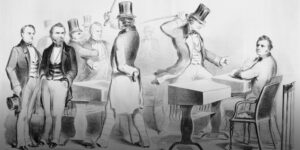Political Culture in America Today

In my college years, I saw America’s university curriculum as a smorgasbord of diverse and delectable ideas. A cornucopia of philosophical, political, and social ideas that were, to me at the time, potentially delicious and also nutritious. I wanted to consume them all.
In contrast, the range of ideas available on social media back then (i.e., radio and TV) was very limited. It was a lonely neighborhood with a cluster of eateries, all of whose menus were comprised of the same half-dozen dishes, all based on the same half-dozen recipes, and all served with only the mildest of spices.
But it was safe and comfortable. Because when it was time to feed yourself, it didn’t matter which restaurant you chose.
When cable TV came along, the menu for new ideas promised a huge expansion as the number of channels went quickly from 13 to nearly 500. Unfortunately, the hoped-for diversity didn’t materialize. The eateries expanded by 4,000%, but the dishes available were all the same.
The internet did indeed expand the diversity of the idea menu exponentially. And for the first 10 to 15 years of this century, there was a flourishing of free ideas, opinions, and sources available to anyone that had access to the World Wide Web.
But then, sometime around 2010, all that rich, intellectual diversity seemed to thin itself out. Online searches for particular social, political, religious, and virtually any other category of collective thinking became more difficult. So difficult that it may as well have been scrubbed from the Web entirely.
Soon after Donald Trump was elected in 2016, another massive change began to take hold that eventually reduced the ideas and opinions available to knowledge seekers to just two: those of the percentage of the population that hated Donald Trump… and those of the Trump lovers.
This final reduction quickly transformed ideas and opinions (and even opinions of facts) into ideational weapons, where they have value only in relationship to whether or not they support one ideology or the other.
And that is where we stand today, with the world defined by ideological tribes that interpret every aspect of human knowledge – from history to psychiatry to medicine to art and literature – in terms of its usefulness in vanquishing (if not eradicating) the enemy.
It’s ugly. It’s also inescapable. For these competing tribal ideologies assert themselves antagonistically. Not just in everything we seek to understand about the world, but in everything we do. From the laws we pass about abortion and discrimination and criminal justice, to what we should do about the Russian occupation of Ukraine and the war between Israel and Hamas.
There is a huge intellectual and emotional advantage to this two-tribe cultural world we now inhabit. Each tribe gets to feel morally superior to the other because, having abandoned believing in the value of ideas, they have the benefit of believing that the ideology they subscribe to is not just absolutely correct, but also absolutely virtuous.
This is extremely dangerous and almost sure to end very badly for both tribes. The emotional mechanism that fuels and informs and preserves ideologies is always and inevitably not just uncharitable and anti-intellectual, it is mindlessly self-destructive.
So, yes, the two-tribe world we Americans now live in was sparked into life by the election of Donald Trump. But something else happened during the Trump presidency. A third group was formed of people that neither hated nor loved him but hated the way the Trump Haters set out to end his presidency by any means necessary. I consider myself one of that group, and I believe there may as many as ten million of us.
We cannot be identified by red hats or black masks or by the color of our skin or by our religion or lack of religion or by the level of our education. If there is something that unites us, it is the value we still hold in ideas, our deep distrust of ideology, and our unwillingness to submit our individuality to any sort of group-think.
And we could be the largest bloc of swing voters. Which would make the outcome of the next election interesting… except that we also are very reluctant to vote.
 MarkFord
MarkFord






